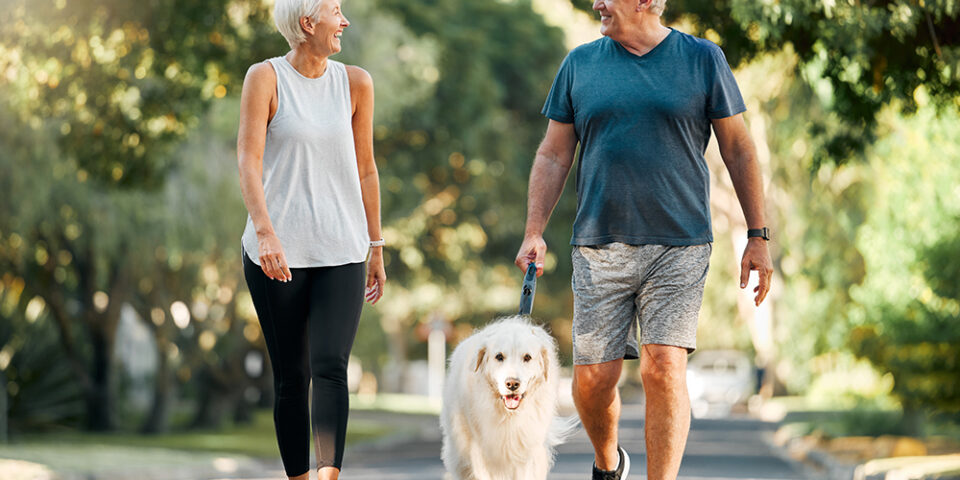Why walking is great for your joint health
If you’re looking for a way to keep your joints healthy, the answer is as simple as it gets: walking. Orthopedic surgeon Nathan Moroski, MD, explained why walking is great for your joint health and what you can do if pain might be holding you back.
Why is walking a good form of exercise?
When you look at exercise options, there are several reasons why walking is a good choice. Walking is a low impact activity, so it’s relatively easy on your joints. You can literally go for a walk almost anywhere, so for most people, it’s practical and efficient. You don’t have to spend time going to or from the gym.
Data has also shown that getting regular exercise through walking can help you stay in shape and prevent illness. “We typically recommend that people find 30 minutes per day to be active,” said Dr. Moroski. “That can even include yard work, housework, parking further away, going grocery shopping – all that walking movement is helpful.”
How can you prevent hip and knee pain when you walk?
Dr. Moroski offered a few tips.
- Stretch. Warm up your muscles before you begin your walk. Some light stretching helps you maintain the elasticity and health of not only the muscles, but the ligaments, tendons and soft tissue surrounding them.
- Try some resistance training, which can also help strengthen your muscles and make your joints more stable.
- Don’t do too much too soon. Increase your steps over time to give your body time to get used to the activity.
If you feel pain when you walk, should you stop exercising?
“The only time I recommend complete rest is if you’re recovering from an acute injury or surgery,” Dr. Moroski said. “The body’s made to move. What I typically recommend is finding some way to stay active. If walking is causing you pain, try getting on a stationary bike or an elliptical machine or swimming. Find other ways to remain active while you’re recovering from whatever’s bothering you.”
When should you see a doctor about hip or knee pain?
If the pain is more of a nagging injury, Dr. Moroski said to give it about six weeks of altering the activity, trying anti-inflammatories such as Advil or ibuprofen and applying ice and heat. If it’s not getting better by about six weeks, then it’s probably time to call your doctor.
If you’ve tried using ice and heat for a couple of days and you’re still in severe pain with inability to bear any weight, call your doctor.
Find a doctor
Whether you’re looking for a primary care physician or need to see a specialist, we’re here to help with experienced, compassionate care near you.
Find a Doctor

